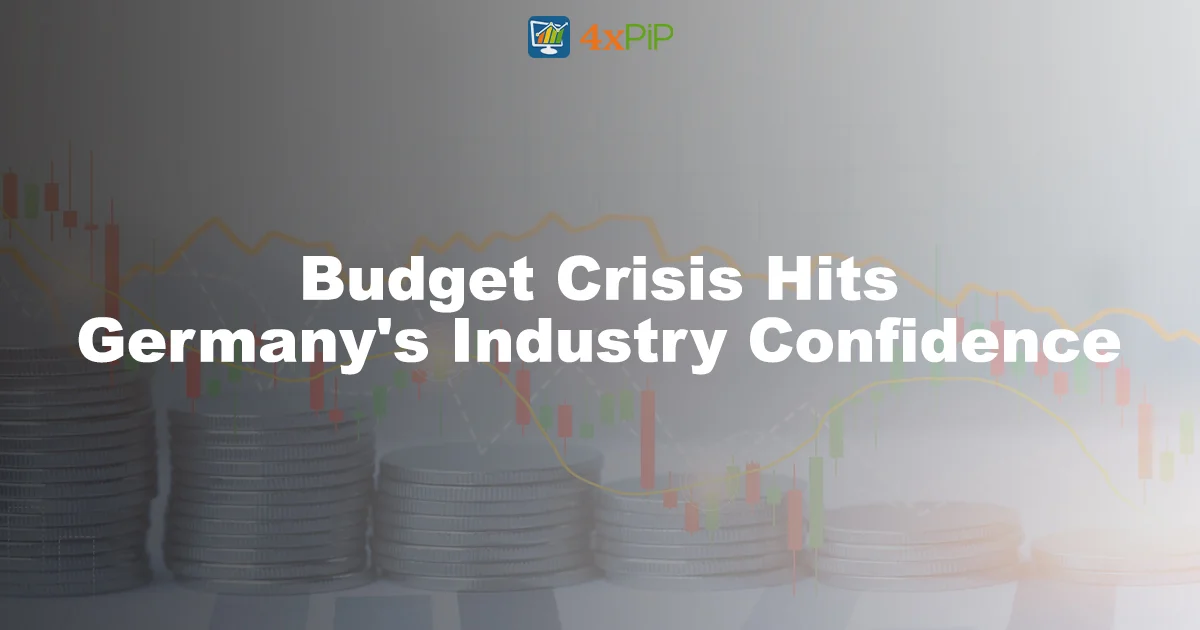Germany, heralded as Europe’s economic powerhouse, finds itself in the throes of a budget crisis with far-reaching implications. The constitutional court’s recent ruling creates a 60-billion-euro gap in 2024 spending plans, raising doubts about funding critical projects. Concerns ripple through industries. In these challenging times, it’s crucial for traders and investors to stay informed about the economic landscape. Explore the unfolding crisis and its impacts below, and for expert insights and guidance on navigating market uncertainties, reach out to 4xPip at [email protected].
The Impact on Steel Industry Investments:
The budget crisis has dealt a severe blow to major players in the steel industry, notably Arcelor Mittal and SHS Stahl-Holding-Saar. With plans to decarbonize German steel mills and invest billions in emission-cutting initiatives, these companies now face uncertainty as government support hangs in the balance. ArcelorMittal’s 2.5-billion-euro project and SHS Stahl-Holding-Saar’s 3.5-billion-euro investment push to cut CO2 emissions are at risk. The inability to secure swift funding decisions threatens industrial production in Germany, triggering concerns about the country’s reliability as a business location globally. The steel industry, a cornerstone of Germany’s economy, is now grappling with the consequences of the budget impasse.
Broader Economic Implications:
Beyond the steel sector, the constitutional court ruling sends shockwaves across various industries, impacting investments totaling billions of euros. Microelectronics, battery cell production, and climate protection agreements are among the sectors facing potential setbacks. The court’s decision adds complexity to Germany’s challenge of insufficient investment in key economic infrastructure, echoing the IMF’s repeated calls for more fiscal flexibility. The constitutionally mandated debt brake, perceived as restricting Germany’s ability to respond effectively to economic challenges, comes under scrutiny. The broader economic implications raise questions about the government’s capacity to stand by its funding commitments and navigate the short-term challenges posed by the budget crisis.
Challenges to Germany’s Competitive Edge:
The budget turmoil amplifies challenges to Germany’s global competitiveness, particularly when compared to locations in Asia and the United States. The risk of big industrial players relocating sites abroad intensifies, potentially altering Germany’s economic landscape. The U.S. Inflation Reduction Act (IRA) enhances regulatory clarity, attracting investments and complicating Germany’s position. The crisis emphasizes investment security, fearing instability may divert competitors elsewhere.
The Global Landscape:
As Germany contends with internal economic challenges, the global landscape becomes increasingly competitive. Industrial players, facing uncertainty domestically, may look to international counterparts for stability. The U.S. IRA, with its regulatory frameworks, presents an appealing alternative, potentially drawing investment away from Germany. The global competition for investment intensifies, posing additional challenges for Germany to retain its status as an attractive business location. The budget crisis adds a layer of complexity to Germany’s ability to compete on a global scale.
Long-term Transformation Concerns:
The constitutional court ruling not only impacts short-term projects but also raises concerns about Germany’s ability to sponsor the long-term transformation of its industries. Plans to lower power prices for industries and efforts to keep key sectors, such as chemicals and steel production, competitive face potential derailment.
Summary:
Germany’s industry confidence wavers amid a budget crisis, affecting key sectors and raising economic stability concerns. Immediate consequences on steel industry investments and broader economic challenges pose complexities. The global investment battleground intensifies, urging decisive action amid concerns about long-term transformation projects. Germany’s ability to navigate the short-term crisis and maintain its global economic standing is uncertain.





